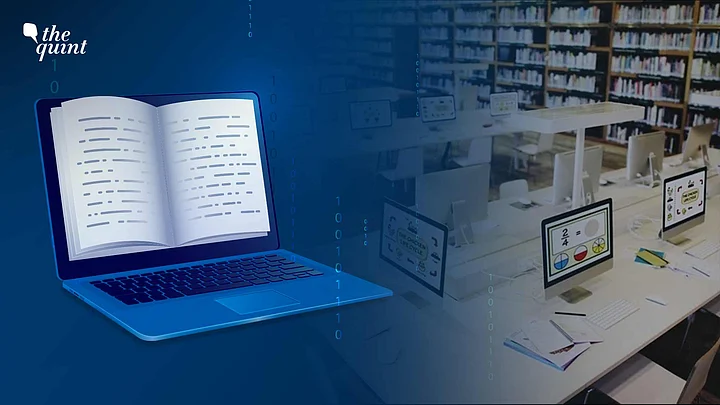In the 21st century, digitisation has ushered in a transformative era for libraries. Traditional libraries, once synonymous with serene aisles of printed books, have evolved into vibrant hubs of digital innovation.
With the advent of e-books, online databases, and digital archives, avid readers can access a vast array of information from the comfort of their homes or on the go. This shift has not only made information more readily available but has also increased access to knowledge, transcending geographical boundaries and socio-economic differences.
The convergence of the old and new in libraries of the future represents an exciting frontier. While e-books and digital collections have gained prominence, physical books and manuscripts continue to hold a special place in libraries.
Digitisation of Libraries: A Futuristic Leap
The tactile experience of holding a book or flipping through the pages of a manuscript is irreplaceable. However, the impact of digitisation goes beyond the mere conversion of resources. It has opened doors to new possibilities and experiences within the library ecosystem.
The exciting future of libraries is evident as they adopt digital tools and technologies to provide access to knowledge and culture. This evolution is shaping libraries into immersive storytelling spaces that offer a diverse range of experiences. Libraries have now become dynamic, inclusive, and technologically advanced hubs of information, that go beyond the traditional pleasures of reading a physical book, and today, feature thrilling adventures like virtual reality.
In this reimagined library landscape, several significant advancements are on the horizon, that are set to reshape our interactions with knowledge and literature. Here's a glimpse of what the future holds:
Multisensory Experiences
Libraries of tomorrow will engage visitors in immersive multisensory experiences. They will not just be about reading; they will be about experiencing stories in a whole new way. As readers peruse physical books, they will also have access to various multimedia displays that enhance the reading journey. Interactive maps and touch-sensitive manuscripts will enrich the traditional library experience, sparking curiosity and igniting creativity.
Picture yourself slipping on a pair of VR goggles and being transported to the bustling streets of Dickens' Victorian London or the enchanting landscapes of Tolkien's Middle-earth. Libraries are becoming portals to other worlds, where literature comes to life through technology.
Personalised Recommendations and AI Assistance
As libraries shift to digital platforms, they will harness the power of artificial intelligence to provide personalised recommendations based on users' interests and past preferences. AI-powered chatbots and virtual assistants will assist users in navigating the vast sea of information, making the research process more efficient and engaging.
This isn't just about convenience; it's about deepening your connection with the world of literature. Whether you're a science fiction aficionado or a history buff, the library ensures that every visit is a journey of discovery.
Creative Zones
Libraries will embrace more artistic expression and creativity. Visitors will discover creative zones abuzz with activity, including a cosy nook where aspiring writers craft their novels, a soundproof studio where podcasters produce their latest episodes and a fully equipped art studio where painters transform their visions into reality.
These dedicated spaces will empower individuals to tap into their artistic potential, erasing the boundaries between passive consumption and active creation.
Artistic Expression
Continuing the journey, one will discover that art transcends traditional canvases, seamlessly woven into the library's very essence. Interactive sculptures beckon visitors to question their perceptions, while immersive exhibitions transport them to distant realms of imagination.
The library has evolved beyond its role as a space for quiet reflection; it has become a dynamic canvas where art and culture converge, extending an invitation to all to explore, question, and dream.
The libraries of tomorrow will be far from the traditional brick-and-mortar structures we’ve known before. They will offer a nostalgic yet refreshing experience and promote meaningful human interactions and deeper connections with knowledge. The libraries of the future are poised to continue bridging the gap between the ages, making knowledge and storytelling accessible and engaging for all.
(Viji Thiyagarajan is the Director Libraries at the British Council in South Asia. This is an opinion article and the views expressed above are the author’s own. The Quint neither endorses nor is responsible for the same.)
(At The Quint, we question everything. Play an active role in shaping our journalism by becoming a member today.)
